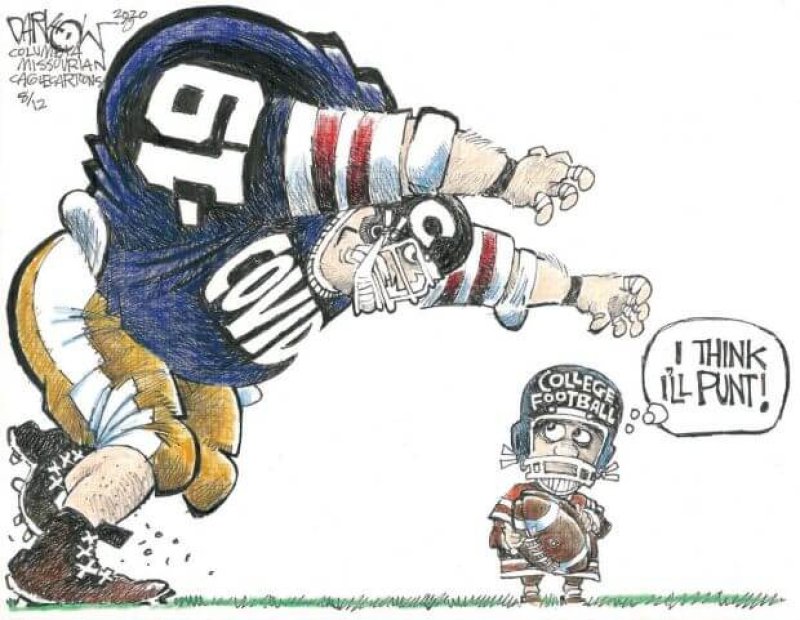“I mean, I feel like the Titanic,” [Emory School of Medicine’s executive associate dean Carlos] del Rio said on [August 13], the day after [the Big 12, Southeastern and Atlantic Coast] conferences said they would not abandon playing football and other sports in the fall, as the Big Ten and Pac-12 had done earlier in the week. “We have hit the iceberg and we’re trying to make decisions of what time should we have the band play.”
…
[D]el Rio’s caustic analogy also underlined how ineffectual the N.C.A.A., which moved decisively to cancel its basketball tournaments and all spring sports in March, has been in directing its schools about whether to go forward with fall sports.In fact, later [August 13], N.C.A.A. President Mark Emmert announced that Division I fall sports championships excluding football would be canceled — not explicitly for health and safety reasons but because after a spate of conferences said this week that they would not play in the fall, there were fewer than the benchmark 50 percent of teams to compete in sports like women’s volleyball, soccer, cross country and men’s water polo. (Football runs its own championship through the College Football Playoff.)
As a result, football players at the remaining schools that are trying to have a season may also find themselves increasingly isolated on their own campuses. This leaves schools in the uncomfortable position of having to justify playing football, a contact sport with rich TV contracts, but not other sports.































